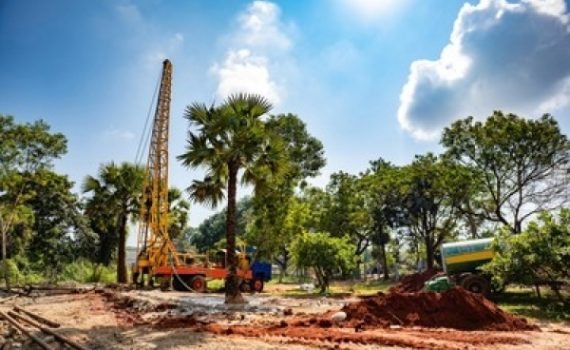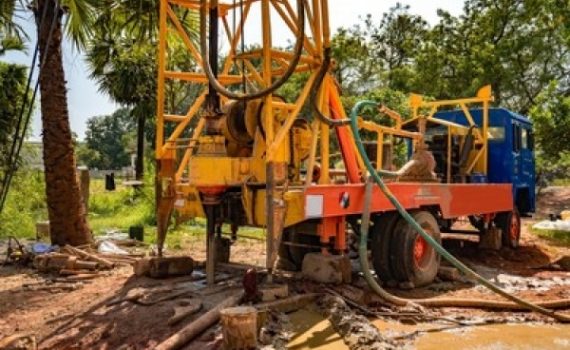Unveiling the Gulf’s Depths: Exploring the Purposes of Well Drilling
Category : Drilling
The Arabian Gulf, a shimmering expanse of turquoise waters, hides a treasure trove of resources beneath its surface. To tap into these riches, a powerful tool comes into play: well drilling. This blog dives deep into the various reasons why well drilling is crucial for the Arabian Gulf region.
What is Well Drilling?
Well drilling involves creating a narrow, vertical shaft into the Earth’s crust using specialized equipment. This allows us to access resources hidden underground, such as water, oil, and gas.
Exploring the Purposes of Well Drilling in the Arabian Gulf

The Arabian Gulf is a global leader in oil and gas production, and well drilling plays a central role in this success story. Let’s explore the key purposes of well drilling in the region:
- Oil and Gas Exploration and Production: Drilling allows us to locate and extract valuable oil and gas reserves trapped deep within rock formations. These resources fuel our economies and power various industries.
- Water Exploration and Supply: Freshwater is a precious commodity in the Arabian Gulf. Drilling helps us locate and access underground water reserves for drinking water, irrigation, and industrial use.
- Geothermal Energy Exploration: Well drilling can tap into the Earth’s natural heat trapped underground. This geothermal energy can be harnessed to generate clean and sustainable electricity.
- Mineral Exploration: The Arabian Gulf holds potential for various minerals. Drilling helps us discover and extract these valuable resources for construction and industrial applications.
- Scientific Research: Researchers use well drilling to collect rock and soil samples for studying the Earth’s history, geology, and climate patterns.
Beyond the Drill Bit: Benefits of Well Drilling
Well drilling goes beyond simply extracting resources. Let’s look at some additional benefits:
- Economic Growth: Drilling activities create jobs, boost industries, and contribute to the economic development of the region.
- Energy Security: By accessing oil, gas, and geothermal resources, well drilling helps countries achieve greater energy independence.
- Water Security: Finding and extracting freshwater through drilling ensures a reliable water supply for populations and agriculture.
Conclusion
Well drilling plays a vital role in unlocking the hidden treasures beneath the Arabian Gulf. It fuels economies, secures energy supplies, and provides access to clean water. As technology advances, well drilling will continue to be a crucial tool for unlocking the full potential of the region’s resources.
Considering the Expertise You Need
When undertaking a well drilling project in the Arabian Gulf, partnering with a reliable and experienced drilling company is essential. Look no further than Al Abrag Trading Est. With a proven track record in the region, Al Abrag Trading Est offers comprehensive well drilling services for various purposes, from oil and gas exploration to water well drilling. Their team of experts utilizes advanced technology and prioritizes safety to ensure a successful and efficient drilling operation for your project.






